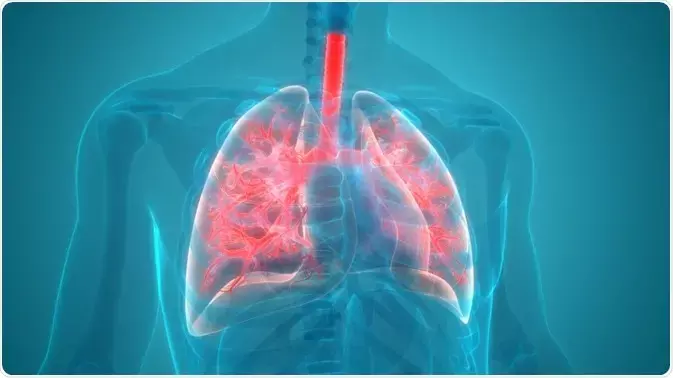- Home
- Medical news & Guidelines
- Anesthesiology
- Cardiology and CTVS
- Critical Care
- Dentistry
- Dermatology
- Diabetes and Endocrinology
- ENT
- Gastroenterology
- Medicine
- Nephrology
- Neurology
- Obstretics-Gynaecology
- Oncology
- Ophthalmology
- Orthopaedics
- Pediatrics-Neonatology
- Psychiatry
- Pulmonology
- Radiology
- Surgery
- Urology
- Laboratory Medicine
- Diet
- Nursing
- Paramedical
- Physiotherapy
- Health news
- Fact Check
- Bone Health Fact Check
- Brain Health Fact Check
- Cancer Related Fact Check
- Child Care Fact Check
- Dental and oral health fact check
- Diabetes and metabolic health fact check
- Diet and Nutrition Fact Check
- Eye and ENT Care Fact Check
- Fitness fact check
- Gut health fact check
- Heart health fact check
- Kidney health fact check
- Medical education fact check
- Men's health fact check
- Respiratory fact check
- Skin and hair care fact check
- Vaccine and Immunization fact check
- Women's health fact check
- AYUSH
- State News
- Andaman and Nicobar Islands
- Andhra Pradesh
- Arunachal Pradesh
- Assam
- Bihar
- Chandigarh
- Chattisgarh
- Dadra and Nagar Haveli
- Daman and Diu
- Delhi
- Goa
- Gujarat
- Haryana
- Himachal Pradesh
- Jammu & Kashmir
- Jharkhand
- Karnataka
- Kerala
- Ladakh
- Lakshadweep
- Madhya Pradesh
- Maharashtra
- Manipur
- Meghalaya
- Mizoram
- Nagaland
- Odisha
- Puducherry
- Punjab
- Rajasthan
- Sikkim
- Tamil Nadu
- Telangana
- Tripura
- Uttar Pradesh
- Uttrakhand
- West Bengal
- Medical Education
- Industry
Additive systemic corticosteroid therapy is negatively associated in severe pneumonia: Study

Additive systemic corticosteroid therapy is negatively associated with patients with severe pneumonia, according to a study published in the Journal of Infection and Chemotherapy
Pneumonia is an infection that inflames the air sacs in one or both lungs. The air sacs may fill with fluid or pus (purulent material), causing cough with phlegm or pus, fever, chills, and difficulty breathing. A variety of organisms, including bacteria, viruses and fungi, can cause pneumonia.
Systemic corticosteroid therapy is occasionally used as an additive therapy, especially for patients with severe pneumonia. However, its recommendation for use in patients with pneumonia varies worldwide, and its efficacy is unclear.
Adult Japanese patients hospitalized with community-onset pneumonia between January and December 2012 were analyzed using the Diagnostic Procedure Combination database. The patients were classified into mild-to-moderate and severe groups using the A-DROP (age, dehydration, respiration, orientation, and blood pressure) system. The 90-day survival rate was evaluated between the presence or absence of corticosteroid treatment using the Kaplan-Meier method in the overall, mild-to-moderate and severe groups, respectively. The patients' clinical characteristics were adjusted between the two groups using the inverse probability of treatment weighting method.
The Results of the study are:
Among 123,811, 110,534 patients were classified as mild-to-moderate grade (corticosteroid group: 8,465, non-corticosteroid group: 102,069) and 13,277 patients were classified as severe grade (corticosteroid group: 1,338, non-corticosteroid group: 11,939). The 90-day survival rate was higher in the non-corticosteroid group than in the corticosteroid group in patients with pneumonia of overall grade (weighted hazard ratio [HR]: 1.36; P < 0.001) and those with mild-to-moderate grade (weighted HR: 1.46; P < 0.001). However, there were no significant differences in the outcomes between the two groups in those with severe grades (weighted HR: 1.08; P = 0.38).
Thus, the researchers concluded that additive systemic corticosteroid therapy may be related to poor 90-day prognosis in patients with mild-to-moderate grade community-onset pneumonia, although it may not be positively associated with its prognosis in those with severe grades.
Reference:
Effects of additive corticosteroid therapy on 90-day survival in patients with community-onset pneumonia by Takashi Tachiwada et al. published in the Journal of Infection and Chemotherapy.
https://www.jiac-j.com/article/S1341-321X(21)00348-2/fulltext
Dr. Shravani Dali has completed her BDS from Pravara institute of medical sciences, loni. Following which she extensively worked in the healthcare sector for 2+ years. She has been actively involved in writing blogs in field of health and wellness. Currently she is pursuing her Masters of public health-health administration from Tata institute of social sciences. She can be contacted at editorial@medicaldialogues.in.
Dr Kamal Kant Kohli-MBBS, DTCD- a chest specialist with more than 30 years of practice and a flair for writing clinical articles, Dr Kamal Kant Kohli joined Medical Dialogues as a Chief Editor of Medical News. Besides writing articles, as an editor, he proofreads and verifies all the medical content published on Medical Dialogues including those coming from journals, studies,medical conferences,guidelines etc. Email: drkohli@medicaldialogues.in. Contact no. 011-43720751


